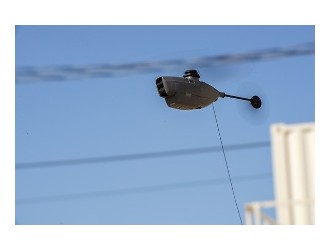
Taylor argued that requiring the owners of small drones and model aircraft to register their names and affix an identification number to their aircraft contravenes the protections Congress afforded model aircraft enthusiasts in the FAA Modernization and Reform Act of 2012. A provision of that legislation—Section 336, the Special Rule for Model Aircraft—states that the agency “may not promulgate any rule or regulation regarding a model aircraft” that is flown for recreational purposes, so long as it is operated in accordance with safety guidelines.
In a decision dated May 19, the U.S. Court of Appeals for the District of Columbia Circuit found in Taylor’s favor and vacated the FAA’s registration rule as it applies to model aircraft. “In short, the 2012 FAA Modernization and Reform Act provides that the FAA ‘may not promulgate any rule or regulation regarding a model aircraft,’ yet the FAA’s 2015 registration rule is a ‘rule or regulation regarding a model aircraft.’ Statutory interpretation does not get much simpler,” the court stated. “The registration rule is unlawful as applied to model aircraft.”
The decision leaves the FAA’s drone registry in limbo. As of May 19, 763,678 hobbyists had registered through the agency’s online system, paying a $5 fee to obtain a single identification number for any small drones they operate. The agency must decide what to do with the registration information it has collected and whether to refund the fee to hobbyists. As an incentive, some were refunded when the registry was launched, but had all paid the fee it would amount to some $3.8 million.
The FAA on May 19 said it was carefully reviewing the appeals court decision. “The FAA put registration and operational regulations in place to ensure that drones are operated in a way that is safe and does not pose security and privacy threats,” the agency stated. While it could seek a rehearing or petition the U.S. Supreme Court, observers predicted the FAA would seek a remedy from Congress through new legislation. Taylor is also challenging the FAA’s Part 101 regulation that allows the agency to decide if a recreational drone is being flown in an unsafe manner—a suit that was consolidated with a legal challenge by the Electronic Privacy Information Center over the absence of privacy rules for small commercial drones.
“I think it’s a pretty embarrassing loss for the agency and I think for the Department of Justice,” which argued the government’s case, said Loretta Alkalay, an aviation attorney, former FAA counsel and adjunct professor at Vaughn College of Aeronautics and Technology who also assisted Taylor. “I know when I worked at the FAA, the department was really loath to go before the court, especially the Court of Appeals, with a losing case and I think they had to have known this was a losing case.”





